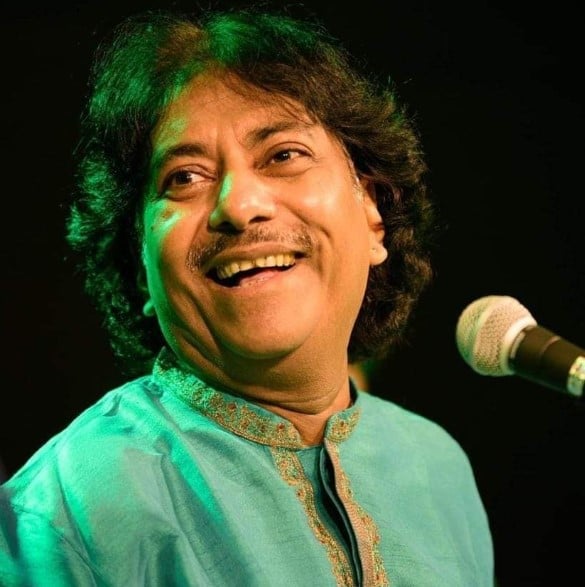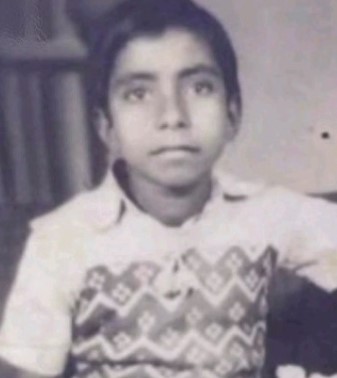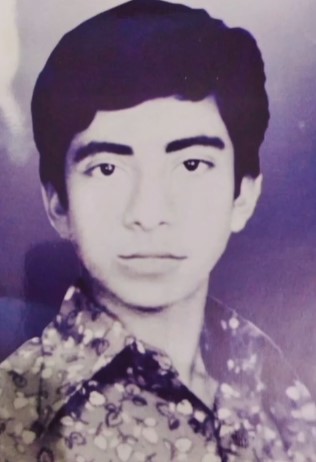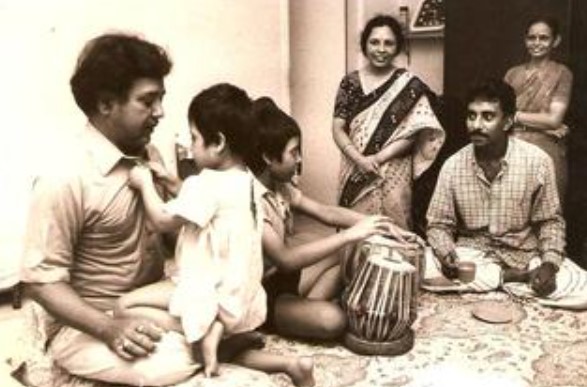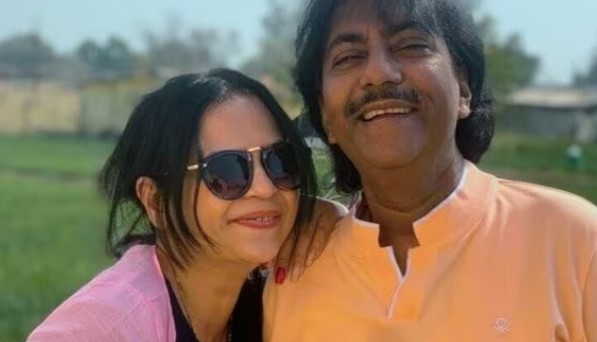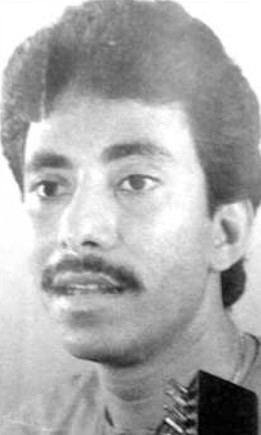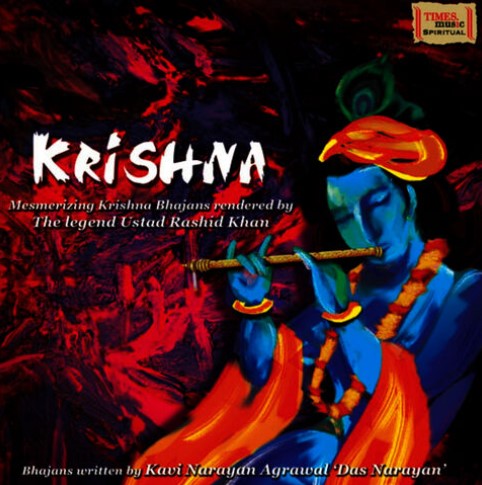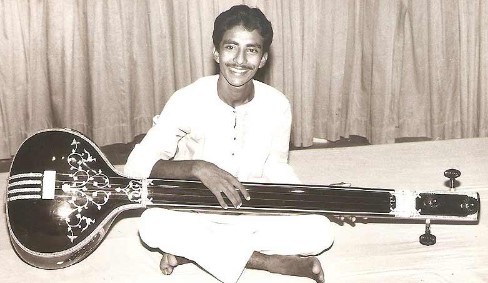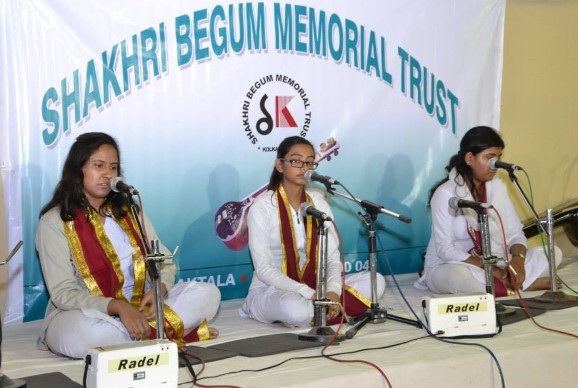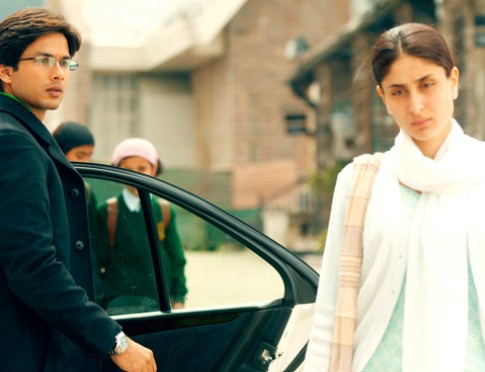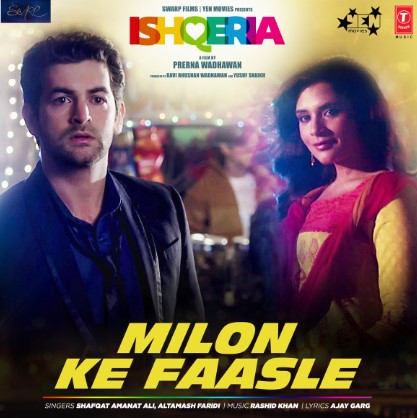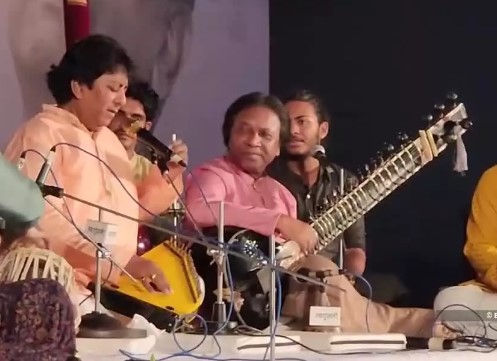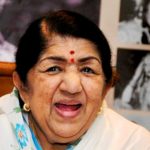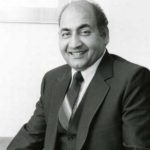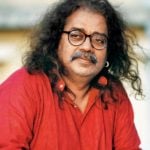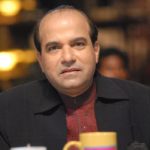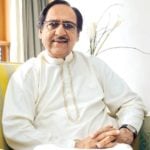Rashid Khan (musician) Age, Death, Wife, Family, Biography & More
Quick Info→
Hometown: Budaun, Uttar Pradesh
Wife: Soma Khan
Age: 55 Years
| Bio/Wiki | |
|---|---|
| Name earned | Ustad Rashid Khan [1]The Times of India |
| Profession | Classical vocalist |
| Physical Stats & More | |
| Height (approx.) | in centimeters- 167 cm in meters- 1.67 m in feet & inches- 5’ 6” |
| Eye Colour | Black |
| Hair Colour | Black |
| Career | |
| Debut | Film Song: "Tore Bina Mohe Chain Nahi" from the film "Kisna: The Warrior Poet" (2004)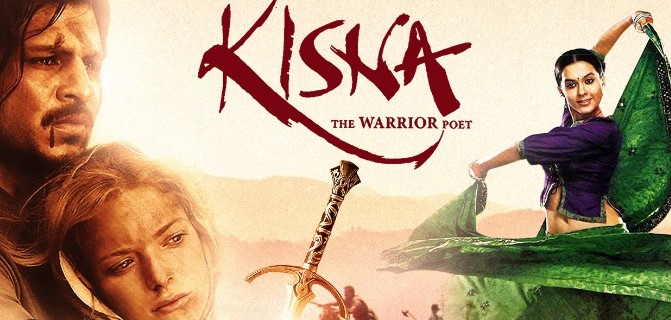 Album: Raga Bageshri/Desh (1991) 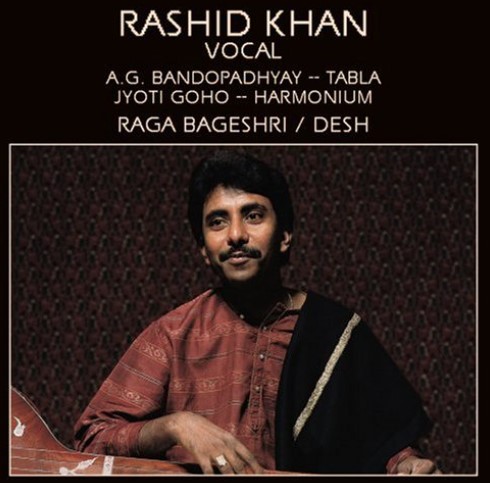 |
| Last Song | "Chanda Se Chhup ke" from the film "Goldfish" (2023)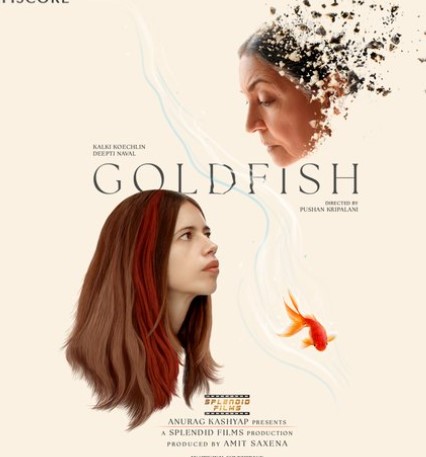 |
| Genre | Hindustani classical music |
| Awards & Honours | • Padma Shri (2006) • Sangeet Natak Akademi Award (2006) • Global Indian Music Academy Awards (GIMA) (2010) • Banga Bhushan (2012) • Maha Sangeet Samman Award (2012) • Mirchi Music Awards (2013) • Padma Bhushan (2022) 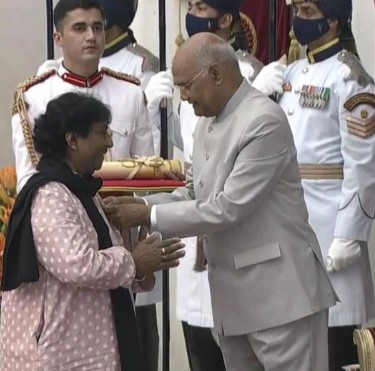 |
| Personal Life | |
| Date of Birth | 1 July 1968 (Monday) |
| Birthplace | Sahaswan, Budaun, Uttar Pradesh, India |
| Date of Death | 9 January 2024 |
| Place of Death | Kolkata, West Bengal, India |
| Age (at the time of death) | 55 Years |
| Death Cause | Prostate cancer [2]Live Mint |
| Zodiac sign | Cancer |
| Nationality | Indian |
| Hometown | Sahaswan, Budaun, Uttar Pradesh, India |
| Educational Qualification | He did not receive formal education. [3]The Hindu |
| Food Habit | Non-vegetarian [4]The Hindu |
| Relationships & More | |
| Marital Status (at the time of death) | Married |
| Marriage Date | 2 December 1991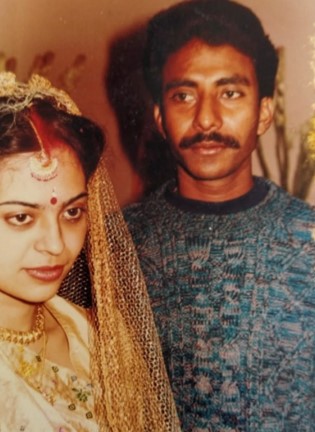 |
| Family | |
| Wife/Spouse | Joyeeta (Soma) Basu Khan (Managing Director of Rashid Khan's Sangeet Academy)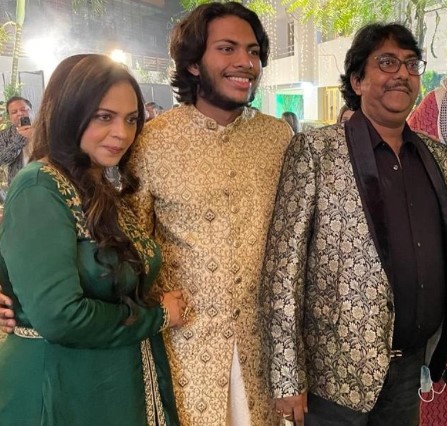 |
| Children | Son- Armaan Khan (musician)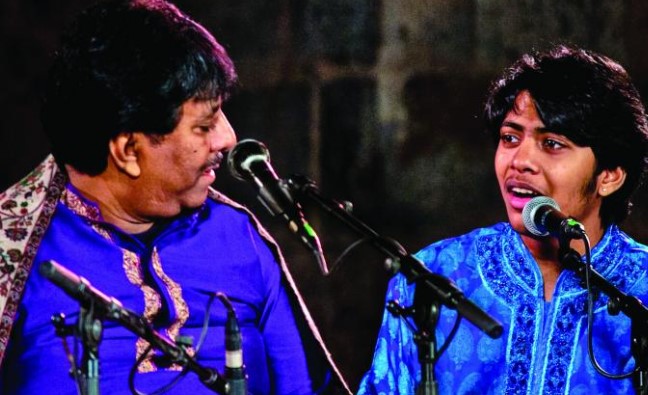 Daughters- 2 • Suha Khan (singer) • Shaona Khan (singer) 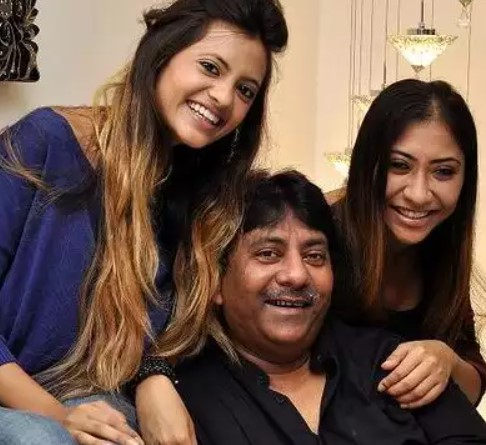 |
| Parents | Father- Hamiz Reza Khan (sufi singer) Mother- Shakhri Begham |
Some Lesser Known Facts About Rashid Khan
- Rashid Khan was a renowned Indian classical musician who played Hindustani music. He was part of the Rampur-Sahaswan music tradition and was the great-grandson of Inayat Hussain Khan, who founded the tradition. Pandit Bhimsen Joshi once said that Rashid Khan was a guarantee for the future of Indian vocal music. He was the recipient of the Padma Shri and the Sangeet Natak Akademi Award in 2006. In 2022, the Indian Government honoured him with the Padma Bhushan, which is the third-highest civilian award in India for his contributions to the field of Art.
- His mother, Shakhri Begham, belonged to a family of musicians in Badaun, Uttar Pradesh. Her uncle, Ustad Nissar Hussain Khan, was a highly respected figure in the Sahaswan gharana. Shakhri Begham had a dream of raising her two sons to become renowned musicians like her uncle. However, when she lost her younger son, she could not bear the loss. Soon, Shakhri Begham passed away and left four-year-old Rashid Khan in pain and loneliness.
- Thereafter, he was raised by his paternal aunt and father. He liked playing kabaddi and cricket so much that it was hard to get him interested in music, even though everyone in the neighbourhood knew he had a great singing voice and an excellent musical memory. His father could not control this playful and stubborn six-year-old ‘Rashid.’ Eventually, his father took him to Ustad Nissar Hussain Khan, the family elder. Rashid was very scared of his strict grandfather.
- Reportedly, he was not interested in music when he was a child. His maternal uncle, Ghulam Mustafa Khan, noticed his musical talent as he grew up and taught him in Mumbai for a while. However, he earned his formal music training from Nissar Hussain Khan at Nissar’s house in Badayun.
- According to Rashid Khan, Nissar Hussain Khan was very strict. He insisted on voice training starting at four in the morning and made Rashid practice a single note of the scale for hours. Rashid did not like these lessons as a child, but the disciplined training excelled him at taan and layakaari.
- Rashid Khan had his first concert when he was eleven years old. In 1978, he performed at an ITC concert in Delhi. In April 1980, when his music teacher ‘Nissar Hussain Khan’ moved to the ITC Sangeet Research Academy (SRA) in Calcutta, Rashid Khan joined the academy at 14. At the age of 18, Rashid started enjoying his musical training. He was officially recognized as a musician at the academy in 1994.
- According to Rashid Khan, he did not receive a formal education, so he admired well-educated and beautiful girls and desired to marry one without considering caste or creed. Once, at a wedding reception, he met Joyeeta (Soma) Basu, a Bengali girl from Guwahati who was pursuing an MBA. Soon, they decided to get married. Their long phone calls worried his strict grandfather, who strongly opposed the decision. However, Rashid, determined at 23, went ahead and married Soma who received the support of Rashid’s maternal uncle, Ustad Ghulam Mustafa Khan. Once, in a media conversation, Rashid Khan shared that he and Soma belonged to different religions. [5]Bangla Hindustan Times He said,
Meeting my wife is the best moment of my life. Our love story is completely different. Our religion is different.”
- The Rampur-Sahaswan style of singing is closely connected to the Gwalior tradition. It involves singing at medium-slow speeds, using a full-throated voice, and playing intricate rhythms. Rashid Khan followed the footsteps of his maternal grand-uncle and incorporated slow and detailed singing in his performances. He also became skilled in using Sargams and Sargam taankari, which involves playing with musical scales. The singing styles of Amir Khan and Bhimsen Joshi influenced Rashid Khan.
- In 1993, he released the album ‘Rashid Khan Live In Concert.’ He then went on to release many music albums and songs such as
- Rashid Khan – Ustad Rashid Khan (1995), Khyal (1996), The Genius of Rashid Khan (2000), Voice of India (2002), Morning Mantra (2003), Master Pieces Ustad Rashid Khan (2006), Kabir (2009), Baithaki Rabi – Ustad Rashid Khan (2012), Classical Wonders of India (2015), Krishna – Ustad Rashid Khan (2013) etc.
- Like his music teacher Nissar Hussain, Rashid Khan was a master of the tarana, a type of musical composition. However, he added his touch by favouring the khayal style over the instrumental stroke-based style that Nissar Hussain was known for. However, he did not imitate instrumental tones.
- Rashid Khan was known for inculcating emotional depth in his melodic elaborations during his live performances. He believed in expressing emotions during different parts of the performance, be it in the alaap while singing the bandish, or conveying the meaning of the lyrics. This added a modern touch to his style compared to older maestros who focused more on impressive techniques and skillful execution.
- Rashid Khan’s accomplishments reached his mother’s initial dream which inspired him. To honour that dream, his wife, Soma Khan, later established the Shakhri Begham Memorial Trust in Kolkata. Initially, the organisation focused on organizing musical events, but the trust later expanded to train musicians. The Rashid Khan Academy, with branches in Agartala and Krishna Nagar, includes experienced and young musicians from the SRA (Sangeet Research Academy) as part of its faculty.
- In 2007, Rashid Khan lent his voice to the song ‘Aaoge Jab Tum Saajna’ from the film Jab We Met.
- He went on to sing many songs in Bollywood films such as “Bhor Bhayo” from the 2009 film Morning Walk, “Poore se Zara sa” from the 2011 film Mausam, “Dewaana Kar Rha Hai” from the film Raaz 3 (2012), “Kabhi Ayien Pe” Hate Story 2 (2014), “Tu Banja Gali” from the 2017 film Shaadi Mein Zaroor Aana, “Milon Ke Fasle” from the 2018 film Ishqeria, “Marwa” from the 2022 film Me Vasantrao.
- Rashid Khan tried blending traditional Hindustani music with lighter genres, as seen in the Sufi fusion recording “Naina Piya Se” (songs of Amir Khusro) and experimental concerts with Western instrumentalist Louis Banks. He also participated in jugalbandis, and musical duels, with sitarist Shahid Parvez and others.
- His official website titled him as a “31st generation descendant of Mian Tansen.”
- On 9 January 2024, Rashid Khan passed away at a private hospital in Kolkata. He had been fighting cancer for a long time. First, he was diagnosed with prostate cancer, and he went to the Tata Memorial Cancer Hospital for medical help. Later, he decided to get specialized treatment in Kolkata. At first, the treatment seemed to be working well. However, in December 2023, his health took a turn for the worse, and he was admitted to the hospital. He was on the ventilator for oxygen support and he passed away at the age of 55. [6]Live Mint
References/Sources:

